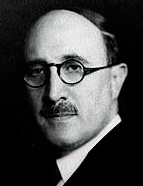

In his speech introducing himself as ambassador, CSA sought to emphasise his deep attachment to the country. "I have loved Portugal," he said, "since the distant years of my youth; I feel admiration for its heroic deeds, its glorious literature, and its splendid art; Portuguese blood runs through the veins of my children." In other speeches, he spoke of the cultural unity between the two nations, the shared sense of Hispanicity, and the importance of academic and scientific collaboration. He visited various institutions, received a warm welcome at the Academia das Ciências [Academy of Sciences], and laid a wreath at the tomb of Alexandre Herculano in the Jerónimos Monastery. CSA held Herculano in great esteem, recognising in him the virtues of "intelligence, erudition, and a wonderful pen". The visit was also attended by several researchers from the Instituto de Estudios Medievales , who were at the time studying the documentation preserved in the Torre do Tombo archive.
The warm reception CSA received in intellectual circles stood in stark contrast to the coldness of the government, which, while maintaining formalities, sent out aggressive messages against Spain, either directly or indirectly. This set the context for the ambassador's interview with Oliveira Salazar on 13 June. The President of the Council, described as having a "good stature" with a "pale, Semitic face" and "clear, not too large eyes that smile effortlessly and often, almost as if to delve deeper into the intimate thoughts of his interlocutor — or perhaps due to some visual defect not corrected" — began the conversation by setting two conditions for the presence of the Spanish government's representative in Portugal: to respect Portuguese independence and not to interfere in the "internal affairs" of Portugal. Salazar softened the tone of the conversation after hearing CSA's reassuring words. Although he continued to insist on silencing certain sectors of Spanish politics and the press that were spreading a negative image of the Portuguese regime, he soon introduced himself as a weary Economics professor, weakened by insomnia, who had taken up his political role for being a "good administrator of the people". However, the impression Salazar made on CSA was not a positive one. He would later write that he encountered a solitary and austere figure, someone who believed in a man without needs or desires, obsessed with saving, and seemingly very distant from the image of an "all-powerful ruler". From CSA's perspective, Salazar lacked any "renovating genius". The intellectual impression was perhaps the most negative. CSA would later claim to have only heard sentences without much significance from the estudioso no con exceso talentudo [scholar not overly talented].
This work is financed by national funds through FCT - Foundation for Science and Technology, I.P, in the scope of the projects UIDB/04311/2020 and UIDP/04311/2020.
